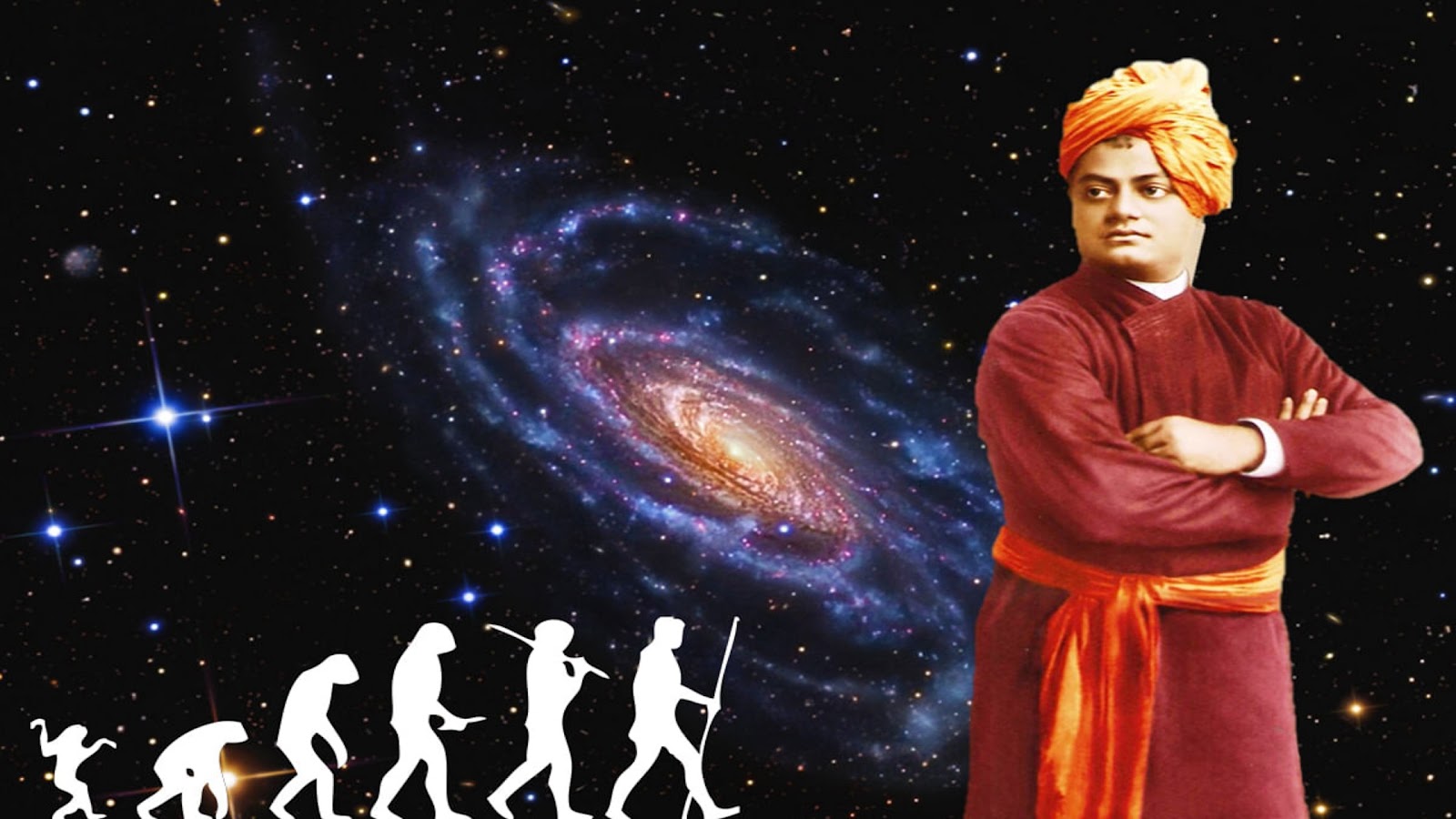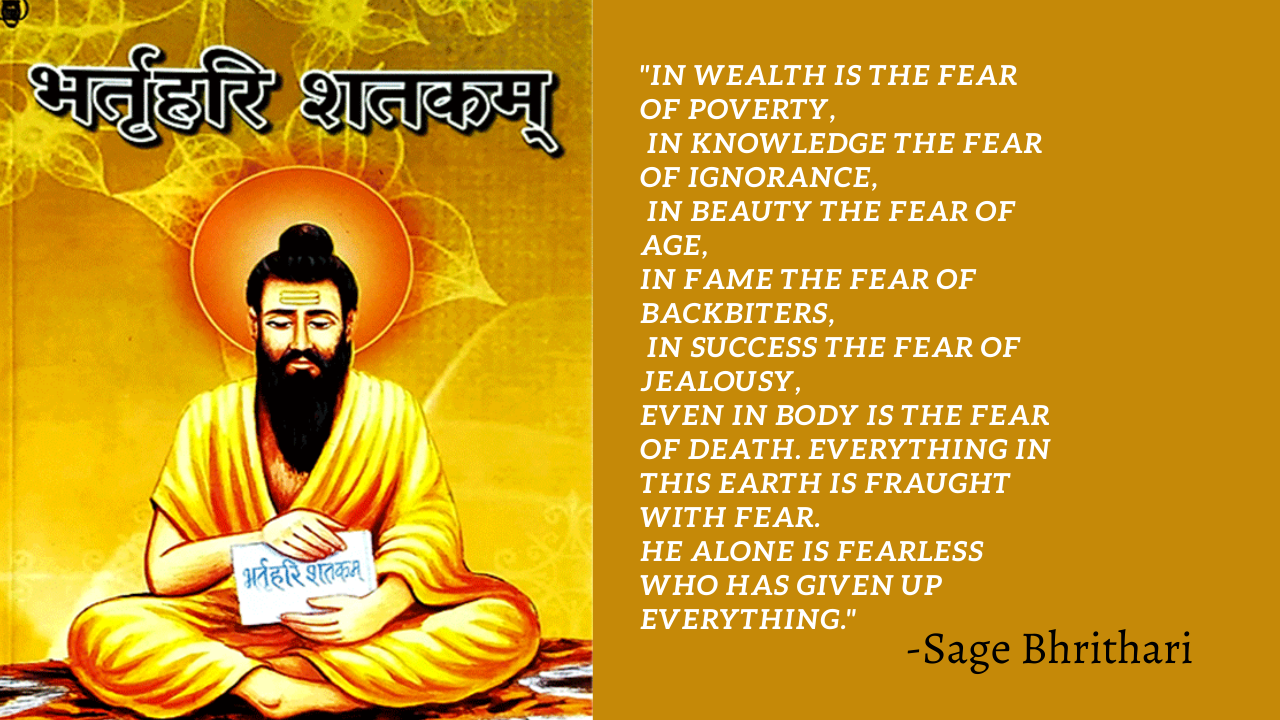Maya and Evolution | Swami Vivekananda
"Maya is evil, bro."
"Money is Maya, Fame is Maya."
Not exactly. Vedanta says that the entire Universe is in the domain of Maya. All the human ideas, most evil of them as well as most noblest of them, both are in and through Maya.
My friends, let's admit. Maya is so much more than our idea of Maya. We only put evil stuff in the banner of Maya - but in reality, A sage appears sagacious in Maya and a sinner appears sinister in Maya.
To momentarily satisfy reader's confusion, I comment on Maya as:-
As long as the mind exists, Maya exists.
Remember the lines from one of my favourite songs written by Swami Vivekananda? I have mentioned those lines a couple of times earlier.
'Ashphuto Mano Ākashe,
Jagato-Shamsharo Bhāshe.'
'In the fuzzy sky of the Mind,
The World-Universe Appears.'
The concept of Maya, and the perception of all the things surrounding Maya, has been most misunderstood in the present era.
Hence let's take shelter of Vedanta to know exactly what it means, and we'll do this in the light of Swami Vivekananda - the most excellent representative of Vedanta I know.
One remarkable thing about Swami Vivekananda's 125 year old lectures is that the words always hit like sharp arrows.
Check it for yourself!
"Trailing clouds of glory we come," says the poet. Not all of us come as trailing clouds of glory however; some of us come as trailing black fogs; there can be no question about that.
But every one of us comes into this world to fight, as on a battlefield. We come here weeping to fight our way, as well as we can, and to make a path for ourselves through this infinite ocean of life; forward we go, having long ages behind us and an immense expanse beyond. So on we go, till death comes and takes us off the field-victorious or defeated, we do not know. And this is Māyā.
Hope is dominant in the heart of childhood. The whole world is a golden vision to the opening eyes of the child; he thinks his will is supreme. As he moves onward, at every step nature stands as an adamantine wall, barring his future progress. He may hurl himself against it again and again, striving to break through. The further he goes, the further recedes the ideal, till death comes, and there is release, perhaps. And this is Maya.
The senses drag the human soul out. Man is seeking for pleasure and for happiness where it can never be found. For countless ages we are all taught that this is futile and vain, there is no happiness here. But we cannot learn; it is impossible for us to do so, except through our own experiences. We try them, and a blow comes. Do we learn then? Not even then. Like moths hurling themselves against the flame, we are hurling ourselves again and again into sense-pleasures, hoping to find satisfaction there. We return again and again with freshened energy; thus we go on, till crippled and cheated we die. And this is Maya.
With every breath, with every pulsation of the heart with every one of our movements, we think we are free, and the very same moment we are shown that we are not. Bound slaves, nature's bond-slaves, in body, in mind, in all our thoughts, in all our feelings. And this is Maya.
There was never a mother who did not think her child was a born genius, the most extraordinary child that was ever born; she dotes upon her child. Her whole soul is in the child. The child grows up, perhaps becomes a drunkard, a brute, ill-treats the mother, and the more he ill-treats her, the more her love increases. The world lauds it as the unselfish love of the mother, little dreaming that the mother is a born slave, she cannot help it. She would a thousand times rather throw off the burden, but she cannot. So she covers it with a mass of flowers, which she calls wonderful love. And this is Maya.
Hence, religion starts when we dare to outgrow Maya.
Two ways have been proposed. One method, which everyone knows, is very common, and that is: "It may be very true, but do not think of it. 'Make hay while the sun shines,' as the proverb says. It is all true, it is a fact, but do not mind it. Seize the few pleasures you can, do what little you can, do not look at the dark side of the picture, but always towards the hopeful, the positive side." There is some truth in this, but there is also a danger. The truth is that it is a good motive power. Hope and a positive ideal are very good motive powers for our lives, but there is a certain danger in them. The danger lies in our giving up the struggle in despair. Such is the case with those who preach, "Take the world as it is, sit down as calmly and comfortably as you can and be contented with all these miseries. When you receive blows, say they are not blows but flowers; and when you are driven about like slaves, say that you are free. Day and night tell lies to others and to your own souls, because that is the only way to live happily."
This is what is called practical wisdom, and never was it more prevalent in the world than in this nineteenth century; because never were harder blows hit than at the present time, never was competition keener, never were men so cruel to their fellow-men as now; and, therefore, must this consolation be offered. It is put forward in the strongest way at the present time; but it fails, as it always must fail. We cannot hide a carrion with roses; it is impossible. It would not avail long; for soon the roses would fade, and the carrion would be worse than ever before. So with our lives. We may try to cover our old and festering sores with cloth of gold, but there comes a day when the cloth of gold is removed, and the sore in all its ugliness is revealed.
Is there no hope then? True it is that we are all slaves of Maya, born in Maya, and live in Maya. Is there then no way out, no hope? That we are all miserable, that this world is really a prison, that even our so-called trailing beauty is but a prison-house, and that even our intellects and minds are prison-houses, have been known for ages upon ages. There has never been a man, there has never been a human soul, who has not felt this sometime or other, however he may talk. And the old people feel it most, because in them is the accumulated experience of a whole life, because they cannot be easily cheated by the lies of nature. Is there no way out? We find that with all this, with this terrible fact before us, in the midst of sorrow and suffering, even in this world where life and death are synonymous, even here, there is a still small voice that is ringing through all ages, through every country, and in every heart: "This My Maya is divine, made up of qualities, and very difficult to cross. Yet those that come unto Me, cross the river of life." "Come unto Me all ye that labour and are heavy laden and I will give you rest." This is the voice that is leading us forward. Man has heard it, and is hearing it all through the ages. This voice comes to men when everything seems to be lost and hope has fled, when man's dependence on his own strength has been crushed down and everything seems to melt away between his fingers, and life is a hopeless ruin. Then he hears it. This is called religion.
On the one side, therefore, is the bold assertion that this is all nonsense, that this is Maya, but along with it there is the most hopeful assertion that beyond Maya, there is a way out. On the other hand, practical men tell us, "Don't bother your heads about such nonsense as religion and metaphysics. Live here; this is a very bad world indeed, but make the best of it." Which put in plain language means, live a hypocritical, lying life, a life of continuous fraud, covering all sores in the best way you can. Go on putting patch after patch, until everything is lost, and you are a mass of patchwork. This is what is called practical life. Those that are satisfied with this patchwork will never come to religion.
Start of Religion
Religion begins with a tremendous dissatisfaction with the present state of things, with our lives, and a hatred, an intense hatred, for this patching up of life, an unbounded disgust for fraud and lies. He alone can be religious who dares say, as the mighty Buddha once said under the Bo-tree, when this idea of practicality appeared before him and he saw that it was nonsense, and yet could not find a way out. When the temptation came to him to give up his search after truth, to go back to the world and live the old life of fraud, calling things by wrong names, telling lies to oneself and to everybody, he, the giant, conquered it and said, "Death is better than a vegetating ignorant life; it is better to die on the battle-field than to live a life of defeat." This is the basis of religion. When a man takes this stand, he is on the way to find the truth, he is on the way to God. That determination must be the first impulse towards becoming religious. I will hew out a way for myself. I will know the truth or give up my life in the attempt. For on this side it is nothing, it is gone, it is vanishing every day. The beautiful, hopeful, young person of today is the veteran of tomorrow. Hopes and joys and pleasures will die like blossoms with tomorrow's frost. That is one side; on the other, there are the great charms of conquest, victories over all the ills of life, victory over life itself, the conquest of the universe. On that side men can stand.
Those who dare, therefore, to struggle for victory, for truth, for religion, are in the right way; and that is what the Vedas preach: Be not in despair, the way is very difficult, like walking on the edge of a razor; yet despair not, arise, awake, and find the ideal, the goal.
Om Namo Bhagavate Sambuddhaya Namah
Daksh Parekh.



Comments
Post a Comment